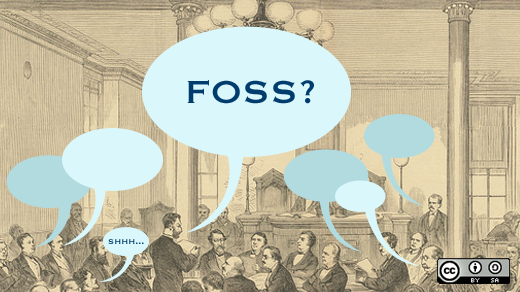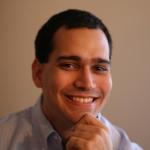There is a fairly common perception among FOSS hackers that there is no community of FOSS lawyers. Scratch the surface, though, and it turns out that- despite our handicaps- the FOSS legal community is there and growing. Since this question recently came up in the context of Mozilla's decision to revise the MPL, I thought it might be a good time to talk about this community here at opensource.com.
A big part of why so many people have assumed that there is no legal community of practice is because lawyers have a lot of structural and cultural barriers to forming real communities of practice. The common practice of billing by the hour encourages us to be very skeptical of any work which doesn't give an immediate payoff. Our occasional arrogance about the complexity of what we do makes it very, very hard to break down the insider/outsider boundary. And our habitual allergy to cluetrain-style plain English, which is so essential to a functional community that it isn't even mentioned in The Open Source Way, is obviously also a problem. On top of all these other problems, the structures of privilege, evidence, and ethics law combine to make lawyers very nervous about discussing anything in public. We're explicitly taught that doing things in public has very few upsides and vast numbers of potential downsides. This means that even when we succeed in dealing with all the other issues, we tend to keep the communities that do exist private and out of the limelight.
Despite all that, the FOSS law community is still growing- which is a testament to the power of the collaborative model. To me, the heart of the test for 'are people a community' is 'can I call on a known group of people for help in a pinch, and would they feel comfortable doing the same of me.' In this informal, unstructured way, there is definitely a growing FOSS legal community of shared interests and relationships. When Mozilla started the MPL process I could list at least a half-dozen people who I knew would want to be involved and would give of their time. A few months in to the process, and the list is now much longer. This informal community- a diverse group including partners at high-profile law firms, counsels at FOSS-using companies, individual practitioners, and others like SFLC- was very helpful in laying the early groundwork for the MPL process, and has continued to be helpful as we've gotten further into it.
This quiet, informal community is also slowly acquiring the infrastructure that marks a more mature internet community. For example, there are now several mailing lists where FOSS lawyers discuss topics of interest. Most of them are private, but one such group- the FSF-E's Freedom Task Force- is publicly visible (though private membership/mailing list) and has already provided some useful MPL feedback. Several more formal organizations, like SFLC, OIN, OSI, and the Linux Foundation, have also started hosting mini-conferences, like OSI's recent event and SFLC's series of events in support of GPL v3. As anyone who has been to a GUADEC or FUDCon knows, this face time is invaluable. Thanks to the efforts of several people, we now even have our own journal- which may not mean much to hackers, but to other lawyers it signals that we're a real intellectual community. Think of it as our (very verbose) community blog- and more importantly, just one more step to feeling connected with each other and eventually providing better services to FOSS hackers.
The shift in hacking from a cloistered, do-everything-in-house mentality to one focused on collaboration and sharing didn't happen overnight. The shift will be even slower for lawyers, but we're working on it, and the end results should be great for the rest of the FOSS community.







19 Comments